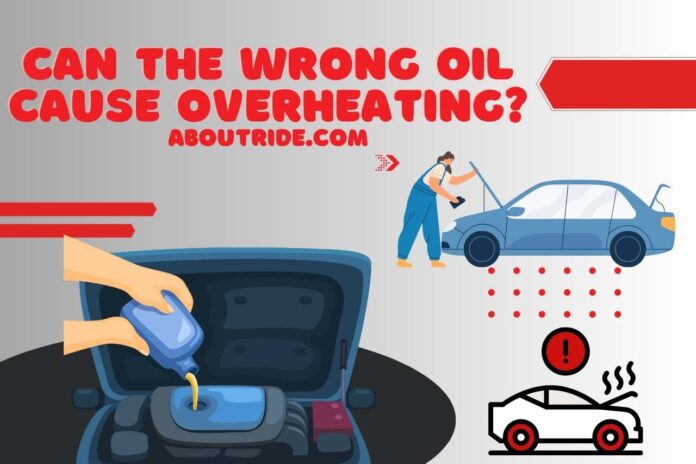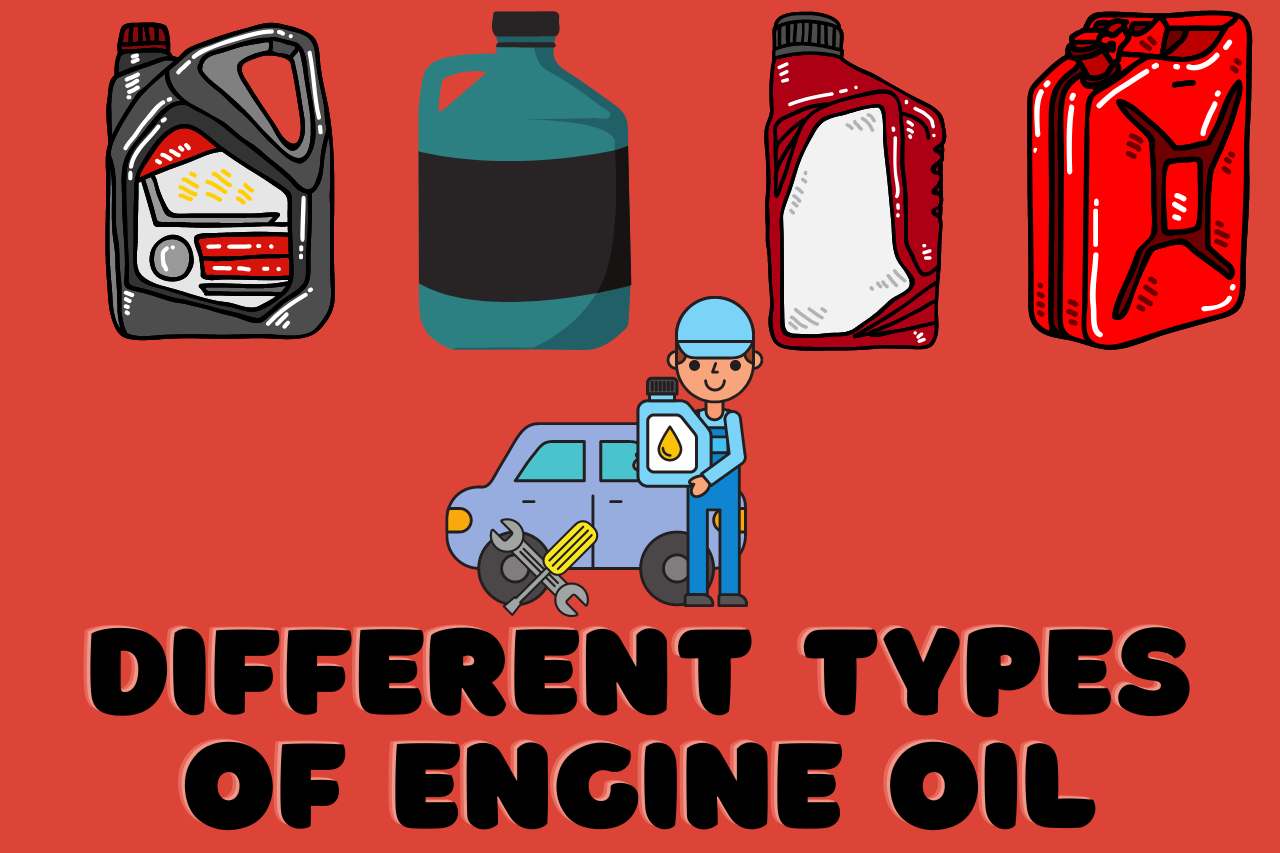Sometimes we wonder about the risk of pouring in the wrong engine oil. The question popping into our heads is, ‘Can the wrong oil cause overheating?’. Well, the thing is, it doesn’t just cause overheating; it could damage even the cylinder wall, bearings, and other important components as well. It is important that we become aware of what is poured into the engine because using the wrong fluid will adversely affect your engine’s performance, longevity, and reliability as well.
So, in this article, we will bring you some insight into what engine overheating is, the importance of using the right oil, the impact of using the wrong oil on the engine, and many other related issues and how to address them.
What is Engine Overheating?
Engine overheating is simply when the engine of your vehicle is running too hot. That is, the engine is extremely hot, with a failed cooling system.
We usually observe this happen when there is only a little antifreeze or the antifreeze is leaking and isn’t circulating properly around the system.
When your engine overheats, the cylinder walls, and pistons could actually deform, bending. When this happens, the engine will get damaged, losing its integrity and pressure seizing entirely.
Most of the time, we observe such overheating when the cooling system is acting up or when your engine oil is having a problem-using the wrong oil, outdated oil, or oil being burnt and needing a replacement.
Having to run with an overheating engine dramatically affect the performance and longevity of the vehicle’s engine.
What is the Importance of Using Right Oil in Car?
We observe many reasons why you should be using the right oil for your engine. Because it protects the engine, its components, the performance, and the reliability of the systems, let’s look into some of the reasons stressing the importance of using the right oil.
- We use engine oil as a lubricant to lubricate so many parts of the engine. This reduces the friction, allowing the engine to combust fuel in the most efficient way possible. Using the wrong engine oil will fail the process.
- Using the right oil is important to avoid all the wear tear on the engine, its cylinder wall, the piston, and more. Doing so will affect the longevity of the engine life.
- Using the right oil will help protect the engine from corrosion and other really harmful chemical reactions taking place inside the system.
- The right engine oil will prevent overheating by absorbing the friction heat by acting as a cooling system.
- The right engine oil being used helps dissolve all the unwanted impurities and other deposits too. This can’t be done with the wrong oil. In fact, it will add only more impurities to the engine.
Today we have engine oils that are designed for different types of engines. There isn’t any one size fit for all types of oil. So always make sure to buy the right oil for your engine because most modern systems need a much thinner oil allowing to reduce resistance. This will save the engine performance and reliability in the long run for you.
Can the Wrong Oil Cause Overheating?
Yes, the wrong oil could actually cause overheating. When you’re using the wrong oil, it doesn’t just stop with overheating, and your engine will have resistance to the oil, causing wear and tear to the engine’s parts and also ending up with a failed transmission too.
When we use the wrong oil, failed lubrication could result in increased friction between the pistons and other moving parts.
This will overheat your engine with a burning smell. The wrong oil will also end up in lower efficiency of fuel, oil leaks, damages to the vehicle, and engine seizure.
Different Types of Engine Oil
It is essential that we know the different types of engine oil available in the market because each type of oil is used for different types of engines. This will help us keep the engine safe and running smoothly.
Semi-synthetic Engine Oil
This is the type of oil we find to have properties of both mineral and synthetic oils. The oil actually has the affordability of mineral oil and the level of performance when it comes to synthetics.
They also call this the synthetic blend oil; the oil is designed to reduce the wear and tear resistance and also increase the viscosity to run the engine smoothly at the lowest temperature possible.
Mineral Oil
The very first is the crude oil used for engines, also known as conventional engine oil. Mineral oil is the refined petroleum oil used to run engines.
They are the cheapest of the oils in the market, and we mostly use them in our old vehicles that support the use. Compared to our modern oils, they aren’t much of use anymore.
Synthetic Oil
The oil is known to be the best of the best for engines. The oil has a greater efficiency when it comes to fuel and also gives really good protection to the engine and its parts.
Synthetic oil is refined in such a way as to give out the best. We see this oil function with full potential in both high and low temperatures and in severe stress conditions. The way they are extracted makes the oil very costly to buy and use.
What are the Symptoms of the Wrong Oil in a Car?
If you happen to use the wrong oil in your car, and you aren’t sure about it either. You could actually look to find these symptoms of using the wrong oil in your car.
- When you happen to use the wrong oil, it would actually damage the vehicle forming small leaks in the oil from your engine. This will come with a burning smell too.
- If the oil you used has a low viscosity, your engine won’t be lubricated properly. What happens then is your vehicle engine will start heating up with a burning smell.
- Sometimes the wrong oil is used, affecting the viscosity and will thicken the oil inside, depressing the mileage of your vehicle. When this happens, your vehicle’s fuel efficiency will also be affected dramatically, and you will most probably spend too much on gas.
- The wrong oil will start damaging your engine to the point of wear and tear of the cylinder walls and piston. When the friction is high with a very thin oil used, the engine will start making weird noises.
Does Thicker Oil Run Hotter?
Thicker oils have a good viscosity, and whether the thick oils run hot actually depends on the type of engine it supports.
Thick oils are good lubricants for high temperatures. Because when the engine is heating up, some heat is transferred to the oil, thinning it.
When the oil keeps thinning because of the heat, the oil will stop lubricating eventually. Having a cooling system for the oil could sometimes reduce the impact.
Will the Wrong Oil Damage My Engine?
Yes, the wrong oil does cause damage to our engines. When the wrong oil is used, there will be high wear and tear on the most crucial parts of your vehicle’s engine.
It could be the piston, the cylinder walls, the combustion, etc. The high friction and resistance will seize the engine. Your vehicle wouldn’t even start because of the inability to function.
Is 5W-30 or 5W-40 Better?
The W in the oil indicates the winter temperature protection level, while the number indicates the thickness or viscosity level of the oil.
The higher the level of thickness, the thicker the oil would be in warm temperatures. Both 5W-30 and 5W-40 are oils designed for a cold temperature of -25 degrees Celsius. So which oil is better depending on the thickness level number indicated? The thicker the oil, protection is high in warmer temperatures. According to that, 5W-40 is better.
Watch this one,
Video Credits – YourCarFacts
You May Also Like

